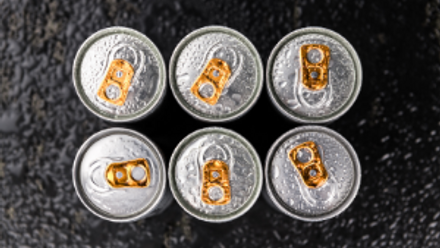Autism, or autistic spectrum condition (ASC), is a lifelong condition. It affects the brain and how a person communicates and relates to other people and the world around them. It is thought that around 1 in 100 people in the UK are autistic.
If you are autistic, you may have difficulty with communication and social interactions with others.
This Fact Sheet looks at the most common dietary problems affecting autistic people and how dietitians can help.

Who is affected by autism?
Autism is a spectrum condition. This means it affects people in different ways with varying symptoms, level of functioning and challenges. Every autistic person has a different personality and set of abilities.
Autistic people can experience increased sensitivity to light, touch, sound and taste. This can impact on the variety of foods that they eat.
There are no differences in nutritional requirements for autistic people and a balanced diet is important for good health and development.
Some common dietary considerations associated with autism are:
- A need for routine around mealtimes. This can include specific seating for you and the people you eat with, or specific cutlery and plates. You may want to eat alone
- Sensitivity to smells, sights and sound at mealtimes can impact eating
- Gut upset, including constipation, diarrhoea and a bloated stomach
- Food hypersensitivity (when the body reacts badly to certain foods)
- Eating a limited diet - a small number of foods similar in colour and taste
Problems with eating
You may have sensory issues, which means you feel more sensitive to the way things (including foods) smell, taste, look and feel. This can make it difficult to eat certain foods and can lead to eating a very limited diet.
Some examples include:
- Having a strong preference for certain textures (such as crunchy or soft foods)
- Preferring certain food brands
- Preferring “beige foods” such as crisps, biscuits, white bread, chicken nuggets
- Preferring food cut in a certain way (e.g. toast cut into squares but not triangles)
- Not wanting different foods to touch on a plate
- Foods that are predictable may be preferred. For example, a branded takeaway burger or a specific brand of crisps will always look and taste the same. But one banana may be very ripe and another could be underripe or bruised, so is unpredictable. Autistic people tend to prefer things that are predictable, as this can help to reduce anxiety
Most people will meet their nutritional needs even if their diet lacks variety - but some won’t get all the nutrients they need. If you prefer foods that are high in sugar and fat and eat little or no fruit, vegetables, fish or whole grains, this can lead to putting on weight, constipation and there may be a risk of nutritional deficiency.
A very limited intake (for example, eating less than 20 different foods) can be quite worrying. It may again lead to nutritional deficiency which could affect weight, growth and overall health.
Mealtimes are often full of lots of people, noises and smells and for an autistic person, this can be very stressful and make the mealtime environment an unpleasant experience.
Dietitians can help with advising on techniques to reduce anxiety around mealtimes. Other health professionals, such as occupational therapists, can also help - especially when it comes to sensory difficulties.
Vitamin and mineral supplements
A dietitian, GP or pharmacist can advise on suitable supplements to help meet nutritional requirements. This can help to prevent any nutritional deficiencies.
Problems with digestion in autistic people
Digestion is when foods are broken down by the body into nutrients known as fats, proteins, starches, sugars, vitamins and minerals. Gut problems such as constipation, diarrhoea and a bloated stomach are often seen in autistic people. You may find taking a probiotic helps relieve gut symptoms.
Eating regular meals containing fibre and having six to eight drinks a day will often help. High fibre foods including wholegrain breakfast cereal, wholemeal and/or granary bread, fruit, vegetables, beans and pulses can also help to increase fibre intake.
Any gastrointestinal symptoms should be managed in the same way as in those who are not autistic.
Gluten and casein-free diets (food hypersensitivity)
Gluten is a protein found in wheat, rye and barley and foods made from them. This includes bread, pasta, biscuits and breakfast cereals. Casein is a protein found in cow, goat and sheep milks. Foods made from them include cream, yoghurt and cheese.
Some people report feeling better when removing these foods from their diet but there isn’t any evidence to support this at the moment.
National Institute for Health and Care Excellence (NICE) advises not to use exclusion diets such as gluten and casein-free diets as you may miss out on certain nutrients. In children this may lead to weight loss and affect their growth.
If you would like to follow a gluten and casein-free diet then it is important that you speak with a dietitian to ensure nutritional balance.
How can a dietitian help?
Dietitians can:
- look at whether your diet is providing all the nutrients needed
- give advice on nutritional supplements
- give helpful, practical advice to help reduce mealtime stress or anxiety
- if suitable, give advice to help to try new foods
If you are autistic and would like to see a dietitian, you can:
- ask your doctor to refer you to an NHS dietitian
- call your local hospital/community health services and ask to speak to the dietetics team
- find a private dietitian
Top tips
- Ensure a consistent routine around activities and mealtimes. This can be reassuring and help to reduce anxiety around mealtimes.
- Some autistic people may have special interests and these can be used to help engage with any dietary interventions.
- Being aware of sensory needs can be helpful in creating a calmer mealtime. This means limiting noise and smells at mealtimes.
- Only change one thing at a time. Trying or offering similar foods can be helpful to increase the food range. Small changes, one at a time are usually best.
- Increase the visibility of different foods. Being more aware of a food means it becomes more familiar. If your child is autistic, get them involved in shopping or chopping vegetables if they are happy to, even if they are not expected to eat it.
- Be patient. Taking small steps is important and can take time. If you are supporting someone who is autistic, offering lots of support and praise along the way helps.
Source(s)
Mills.E Autism. In. Gandy J (ed) Manual of Dietetic Practice 5th edition Oxford: John Wiley & Sons, Ltd; 2014 p179-181
Connor.Z. In. Shaw V (ed) Clinical Paediatric Dietetics 4th edition Wiley and Blackwell Publishing Ltd; 2014 p504-520
Adams JB, Audhya T, McDonough-Means S, Rubin RA, Quig D, Geis E, Gehn E, Loresto M, Mitchell J, Atwood S, Barnhouse S, Lee W, Nutritional and metabolic status of children with autism vs neurotypical children and the association with autism severity, Nutrition and Metabolism 2011 8 (1) 34
Baird JS, Ravindranath TM, Vitamin B deficiencies in a critically ill autistic child with a restricted diet, Nutrition in Clinical Practice 2014 Available from: PMID: 25112945
Barnhill K, Ramirez L, Gutierrez A, Richardson W, Marti CN, Potts A, et al, Bone Mineral Density in Boys Diagnosed with Autism Spectrum Disorder: A Case-Control Study, Journal of Autism Developmental Disorders 2017 47(11) 3608-19
Burhop J, Gibson J, de Boer J, Heydarian C., Do You C What I C: Emergency Department Evaluation and Diagnosis of Pediatric Scurvy in an Autistic Child With a Restricted Diet, Pediatric Emergency Care 2018
Cruchet S, Lucero Y, Cornejo V, Truths, Myths and Needs of Special Diets: Attention-Deficit/Hyperactivity Disorder, Autism, Non-Celiac Gluten Sensitivity, and Vegetarianism, Annals of Nutrition & Metabolism 2016 68 1 43-50
Guo M, Zhu J, Yang T, Lai X, Lei Y, Chen J, et al, Vitamin A and vitamin D deficiencies exacerbate symptoms in children with autism spectrum disorders, Nutritional Neuroscience 2018 1-11
Hyman SL, Stewart PA, Schmidt B, Cain U, Lemcke N, Foley JT, et al, Nutrient intake from food in children with autism, Pediatrics 2012 130 2 S145-53
Kang V, Wagner GC, Ming X, Gastrointestinal dysfunction in children with autism spectrum disorders, Autism Research 2014 7(4) 501-6
Kawicka A, Regulska-Ilow B, How nutritional status, diet and dietary supplements can affect autism. A review. Rocz Panstw Zakl Hig 2013 64 (1) 1-12
Lázaro CP, Pondé MP, Narratives of mothers of children with autism spectrum disorders: focus on eating behaviour, Trends Psychiatry Psychotherapy 2017 39 (3) 180-7
Ly, V., Bottelier, M., Hoekstra, P.J. et al, Elimination diets’ efficacy and mechanisms in attention deficit hyperactivity disorder and autism spectrum disorder, European Child Adolescent Psychiatry 2017 26 1067, Available from https://doi.org/10.1007/s00787-017-0959-1
Malhi P, Venkatesh L, Bharti B, Singhi P, Feeding Problems and Nutrient Intake in Children with and without Autism: A Comparative Study, Indian Journal of Pediatrics 2017 84(4) 283-8
Marí-Bauset S, Llopis-González A, Zazpe-García I, Marí-Sanchis A, Morales-Suárez-Varela M. Nutritional status of children with autism spectrum disorders (ASDs): a case-control study, Journal of Autism Developmental Disorders 2015 45(1) 203-12
McAbee GN, Prieto DM, Kirby J, Santilli AM, Setty R, Permanent visual loss due to dietary vitamin A deficiency in an autistic adolescent, Journal of Child Neurology 2009 24 (10) 1288-9
Mitchell ES, Conus N, Kaput J., B vitamin polymorphisms and behavior: evidence of associations with neurodevelopment, depression, schizophrenia, bipolar disorder and cognitive decline, Neuroscience Biobehavioural Reviews 2014 47 307-20
Neumeyer AM, Cano Sokoloff N, McDonnell E, Macklin EA, McDougle CJ, Misra M., Bone microarchitecture in adolescent boys with autism spectrum disorder, Bone 2017 97 139-46
Pineles SL, Avery RA, Liu GT, Vitamin B12 optic neuropathy in autism, Pediatrics 2010 126 (4) 967-70
Polfuss M, Johnson N, Bonis SA, Hovis SL, Apollon F, Sawin KJ, Autism Spectrum Disorder and the Child's Weight-Related Behaviors: A Parents' Perspective, Journal Pediatric Nursing 2016 31(6) 598-607
Ranjan S, Nasser JA, Nutritional status of individuals with autism spectrum disorders: do we know enough?, Advanced Nutrition 2015 6(4) 397-407
Ryo Inoue, Yuko Sakaue, Chihiro Sawai, Toshihiro Sawai, Motoyuki Ozeki, Gustavo A. Romero-Pérez & Takamitsu Tsukahara, A preliminary investigation on the relationship between gut microbiota and gene expressions in peripheral mononuclear cells of infants with autism spectrum disorders, Bioscience, Biotechnology, and Biochemistry 2016 80 12
Shmaya Y, Eilat-Adar S, Leitner Y, Reif S, Gabis LV, Meal time behavior difficulties but not nutritional deficiencies correlate with sensory processing in children with autism spectrum disorder, Research in Developmental Disabilities 2017 66 27-33
Srinivasan S, O'Rourke J, Bersche Golas S, Neumeyer A, Misra M, Calcium and Vitamin D Supplement Prescribing Practices among Providers Caring for Children with Autism Spectrum Disorders: Are We Addressing Bone Health?, Autism Research andTreatment 2016 2016 6763205
Täljemark J, Råstam M, Lichtenstein P, Anckarsäter H, Kerekes N, The coexistence of psychiatric and gastrointestinal problems in children with restrictive eating in a nationwide Swedish twin study, Journal of Eating Disorders 2017 5 25
Yang XL, Liang S, Zou MY, Sun CH, Han PP, Jiang XT, et al, Are gastrointestinal and sleep problems associated with behavioural symptoms of autism spectrum disorder? Psychiatry Research 2018 259 229-35







